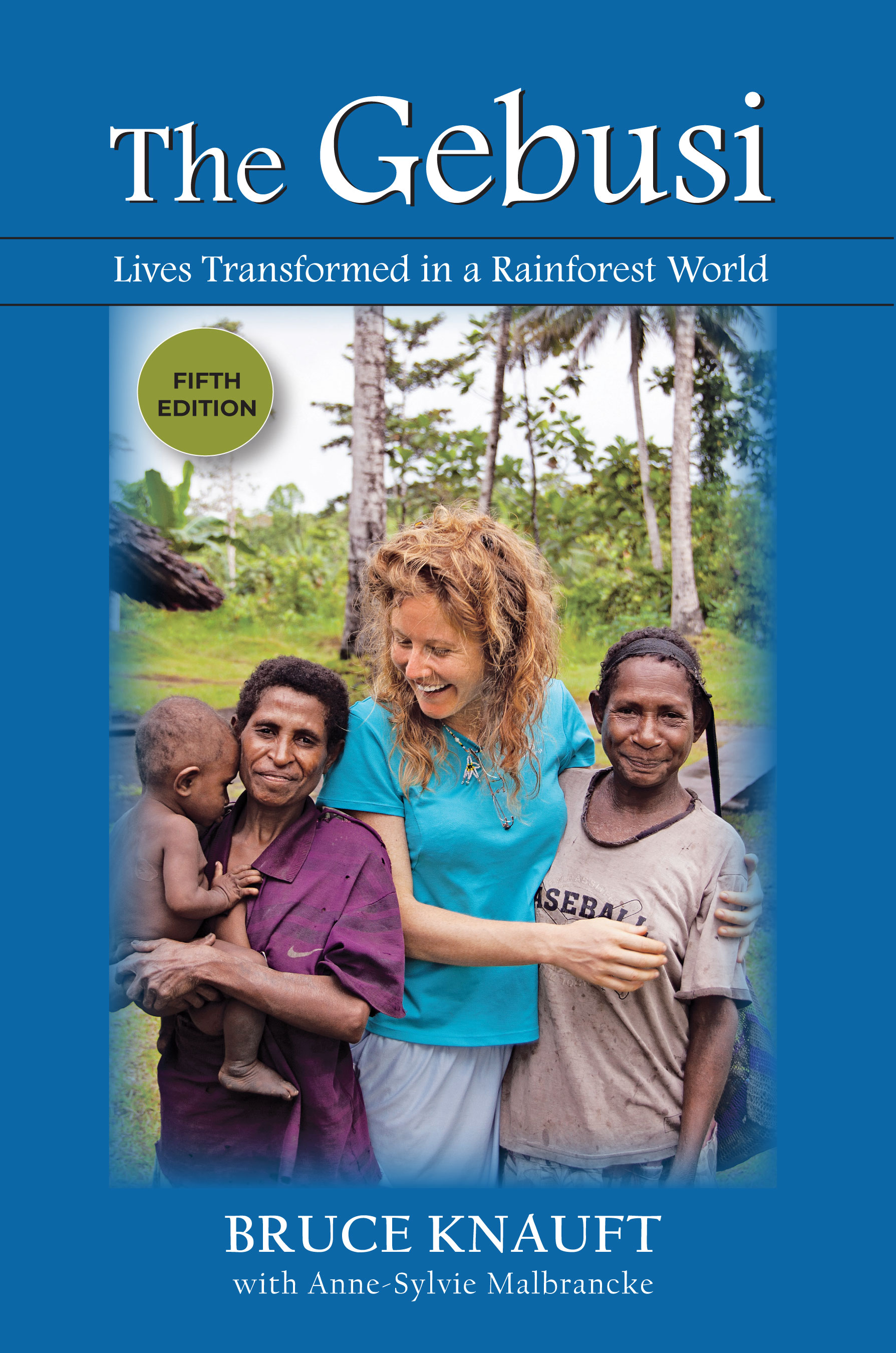“The latest volume is excellent. I like the upgrades as well as the excellent resources on Knauft’s website. The revisions allow researchers to show how anthropological work isn’t static as new insights are developed through long-term connections to the host community.” — Gregory Hansen, Arkansas State University
“My students love The Gebusi book and the stories of sorcery and coming of age. It illustrates so many core areas that I want to cover in my introductory courses—from language to rituals to globalization and change to religion. Knauft has written an amazingly broad book on one culture.” — Jessica Bodoh-Creed, California State University, Los Angeles
“I assign an ethnography of the students’ choice in my class. The Gebusi is one of the most popular because of its readability, the fascination of their traditions, and the carefully drawn relevance to our lives.” — Dorothy D. Wills, California State Polytechnic University
“It is among the most effective ethnographies I’ve used in forty years of teaching introductory cultural anthropology.” — Lawrence Breitborde, Knox College
“This book is integral to my class, a great companion to an introductory anthropology text. We come back to it over and over in class to illustrate concepts in the primary text. It is very relatable as Knauft is young when he first visits the Gebusi. I like the coverage of multiple time periods, and the availability of so much online material.” — Barbara Wolff, Montgomery College
“I think this is a fine piece of ethnographic research. It is rich because of the extended period of research, the depth of understanding on the part of the ethnographer, and importance of the group being studied. The narrative style humanizes the people as well as the ethnographic process.” — Marcella Mazzarelli, Massachusetts Bay Community College

237 pages, $35.95 list
1-4786-4767-1
978-1-4786-4767-6
© 2022
paperback
Student resource materials available here
eBook availability
The Gebusi
Lives Transformed in a Rainforest World
Fifth Edition
Incorporating fieldwork in 2016 and 2017, this latest edition of The Gebusi blends many new developments with those of the past. Poignant descriptions and reflections by young French cofieldworker Anne-Sylvie Malbrancke complement Knauft’s main account—and provide a rich dialogue across subject position and gender in ethnographic writing. In the mix, this vibrant work powerfully documents and critically analyzes key new developments among Gebusi. As such, The Gebusi, Fifth Edition brings the book’s compelling story forward while enriching the content structure and engaged portrayals of earlier editions.
The authors tackles many front-burner issues in cultural anthropology: reflexive awareness in ethnographic writing; gender relations and the subordination of women; postcoloniality; race and ethnicity; and the challenges of government and corruption.
In addition to online field video resources, four instructor presentations, and other study materials and resources, the book itself includes 90 photographs—all in color in the e-book edition—that dramatically convey incidents and people portrayed.
The authors tackles many front-burner issues in cultural anthropology: reflexive awareness in ethnographic writing; gender relations and the subordination of women; postcoloniality; race and ethnicity; and the challenges of government and corruption.
In addition to online field video resources, four instructor presentations, and other study materials and resources, the book itself includes 90 photographs—all in color in the e-book edition—that dramatically convey incidents and people portrayed.
Reactions
Entry
Introduction: In Search of Surprise
Broader Connections: Cultural Anthropology
PART ONE: Wealth in Tradition
1. Friends in the Forest
Broader Connections: Fieldwork and Culture
2. Rhythms of Survival
Broader Connections: Subsistence, Health, and Language
3. Lives of Death
Broader Connections: Life Stories, Death from Sorcery, and “Doing Ethnography”
4. Getting Along with Killers
Broader Connections: Violence, Scapegoating, and the Ethics of Response
5. Spirits, Sex, and Celebration
Broader Connections: Sexuality and Gender
6. Ultimate Splendor?
Broader Connections: Ritual Initiation and Life-Cycle Transitions
PART TWO: Radical Change
7. Time for Change: Sacred Decisions
Broader Connections: Sociocultural and Religious Change
8. Pennies and Peanuts, Hopes of Success
Broader Connections: Markets, Development, and Modern Aspiration
9. Mysterious Romance, Marital Choice
Broader Connections: Ethical Challenges, Agency, and “Companionate Marriage”
10. The Wider World of Influence—and Its Limits
Broader Connections: Nationhood, Ethnicity, and Folklore
PART THREE: Blurring the Past in the Present
11. Closer, Closer, Further Away: Revival, Independence, and Government Absurdity
Broader Connections: Cultural Survival, Development, and Engaged Anthropology
12. The Larger Future
Broader Connections: Globalization, Political Economy, and the Future of Culture
Farewells
Introduction: In Search of Surprise
Broader Connections: Cultural Anthropology
PART ONE: Wealth in Tradition
1. Friends in the Forest
Broader Connections: Fieldwork and Culture
2. Rhythms of Survival
Broader Connections: Subsistence, Health, and Language
3. Lives of Death
Broader Connections: Life Stories, Death from Sorcery, and “Doing Ethnography”
4. Getting Along with Killers
Broader Connections: Violence, Scapegoating, and the Ethics of Response
5. Spirits, Sex, and Celebration
Broader Connections: Sexuality and Gender
6. Ultimate Splendor?
Broader Connections: Ritual Initiation and Life-Cycle Transitions
PART TWO: Radical Change
7. Time for Change: Sacred Decisions
Broader Connections: Sociocultural and Religious Change
8. Pennies and Peanuts, Hopes of Success
Broader Connections: Markets, Development, and Modern Aspiration
9. Mysterious Romance, Marital Choice
Broader Connections: Ethical Challenges, Agency, and “Companionate Marriage”
10. The Wider World of Influence—and Its Limits
Broader Connections: Nationhood, Ethnicity, and Folklore
PART THREE: Blurring the Past in the Present
11. Closer, Closer, Further Away: Revival, Independence, and Government Absurdity
Broader Connections: Cultural Survival, Development, and Engaged Anthropology
12. The Larger Future
Broader Connections: Globalization, Political Economy, and the Future of Culture
Farewells